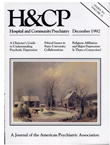Psychotic Depression: Advances in Conceptualization and Treatment
Abstract
Psychotic depression is a unique subtype of depressive illness in which mood disturbance is accompanied by delusions, ballucinations, or both. Once considered relatively uncommon, it is frequently encountered in clinical practice, particularly in treatment-resistant depressed patients. Psychotically depressed patients respond poorly to antidepressants, but remission is likely with neuroleptic-antidepressant combinations or electroconvulsive therapy. Psychotic depression may be unipolar or bipolar with early or late onset and may be more likely to occur in patients with a history of childhood psychic trauma. Much is known about the course and treatment response of obvious presentations of psychotic depression, but more must be learned about depressed patients who have intermittent, subtle, or mild psychotic symptoms and about the ways in which the capacity to become psychotic interacts with the capacity to become depressed to produce a syndrome greater than the sum of its parts.
Access content
To read the fulltext, please use one of the options below to sign in or purchase access.- Personal login
- Institutional Login
- Sign in via OpenAthens
- Register for access
-
Please login/register if you wish to pair your device and check access availability.
Not a subscriber?
PsychiatryOnline subscription options offer access to the DSM-5 library, books, journals, CME, and patient resources. This all-in-one virtual library provides psychiatrists and mental health professionals with key resources for diagnosis, treatment, research, and professional development.
Need more help? PsychiatryOnline Customer Service may be reached by emailing [email protected] or by calling 800-368-5777 (in the U.S.) or 703-907-7322 (outside the U.S.).



